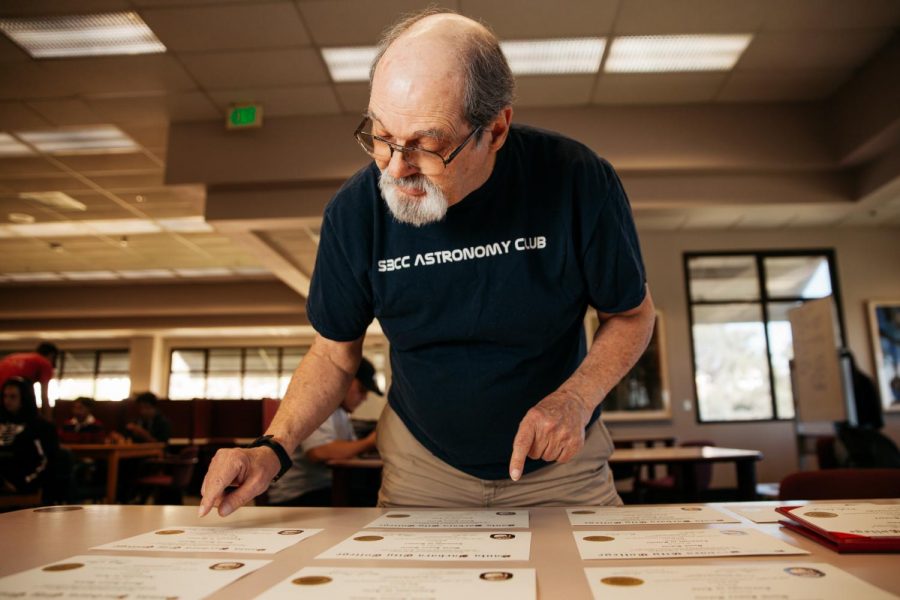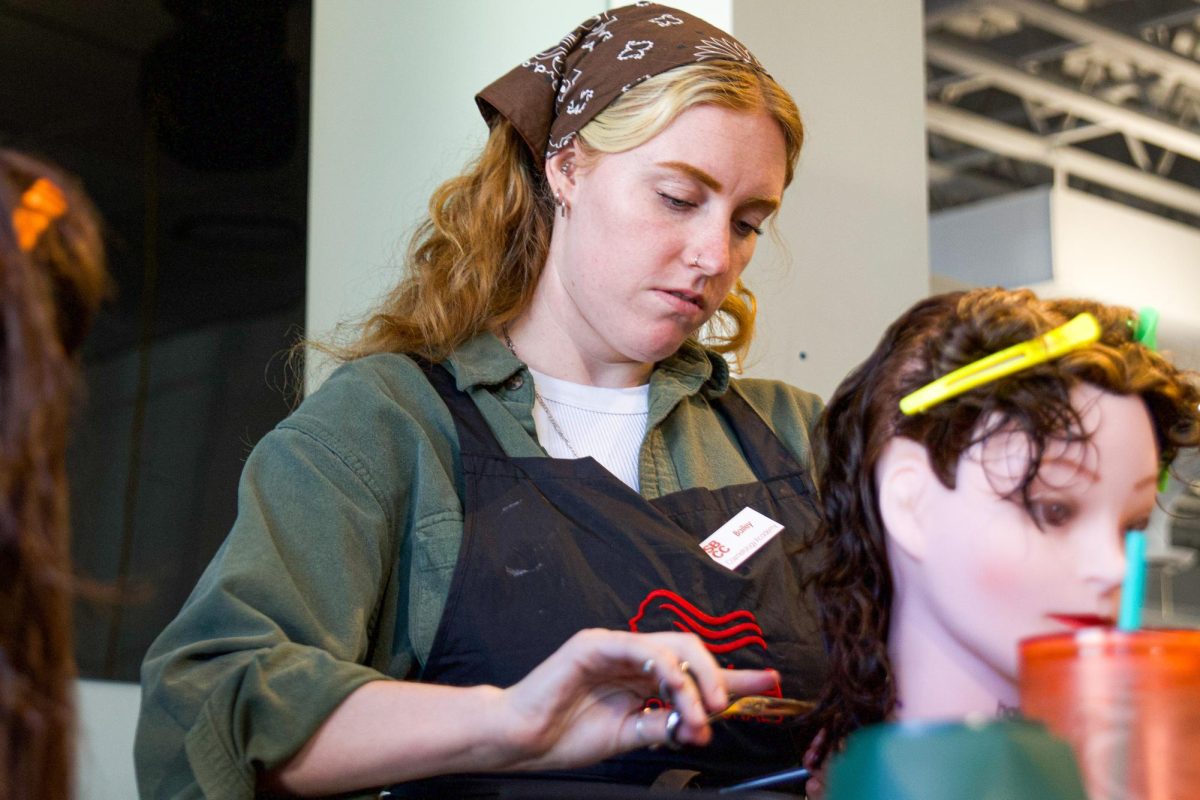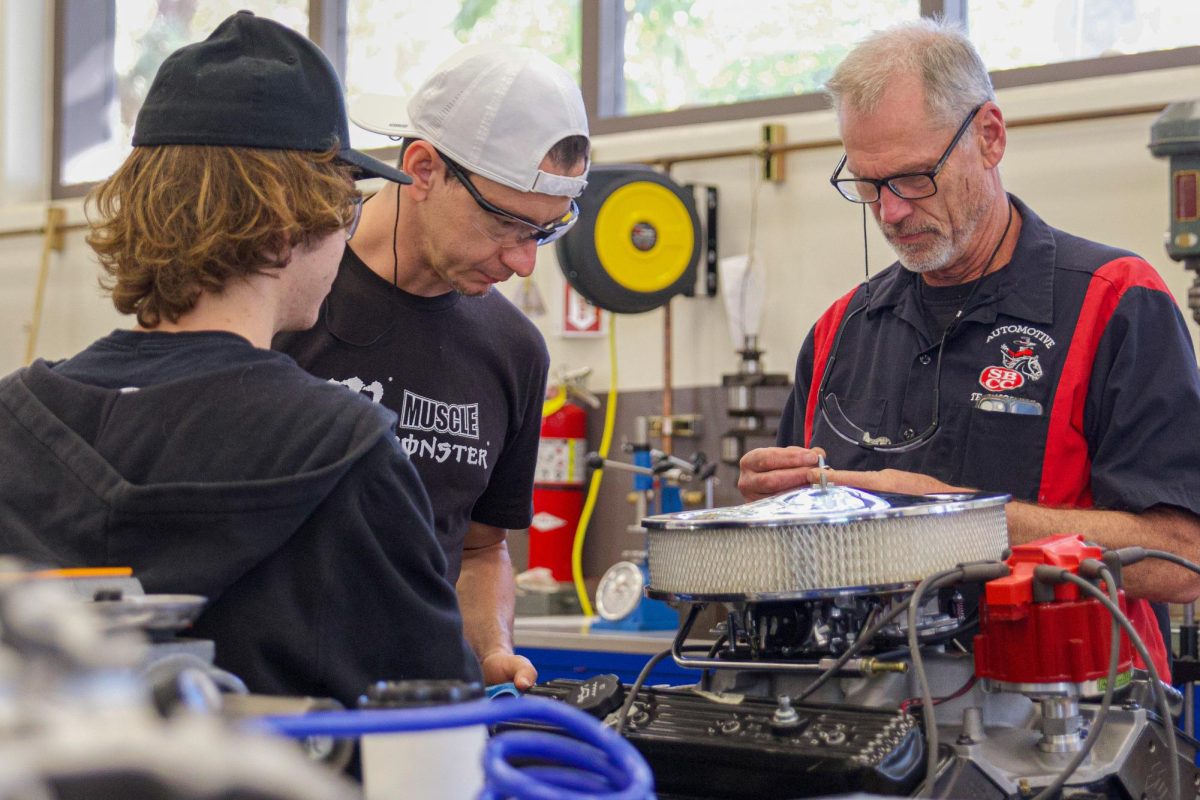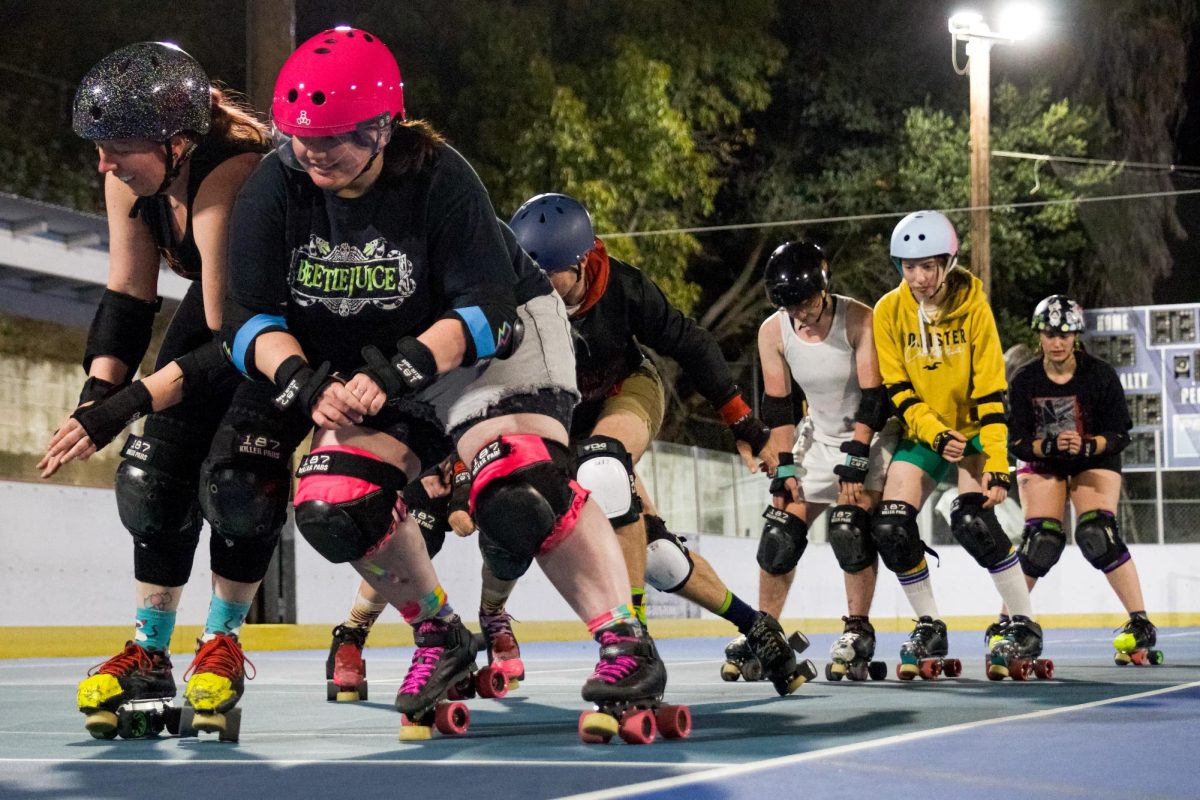Like a lot of City College students, David Salvia doesn’t know what he wants to be when he grows up.
He has many interests — math, English, science. He’s also creative and can solve a Rubik’s Cube in 10 seconds.
But there’s something different about Salvia that separates him from the thousands of other students on campus.
He has 11 degrees and is 72 years old. And there’s no stopping him.
“I just want to learn new things,” Salvia said.
Salvia is one of the oldest students at City College, but he’s also one of the most curious, ambitious and motivated.
His academic journey began a long time ago.
Salvia originally began attending City College in 1971 but dropped due to concentration and memory problems.
“I went a decade with only 10% of my memory,” Salvia said. “I was really good at math, but I lost most of it.”
He found comfort in Rubik’s cubes, which helped him with his memory and concentration.
“You want to see how fast I can solve one?” he asked me while reaching into his backpack. “Here, mix it up,” he said as he handed me the cube.
Salvia solved the cube in 30 seconds, saying that his record is 10 seconds.
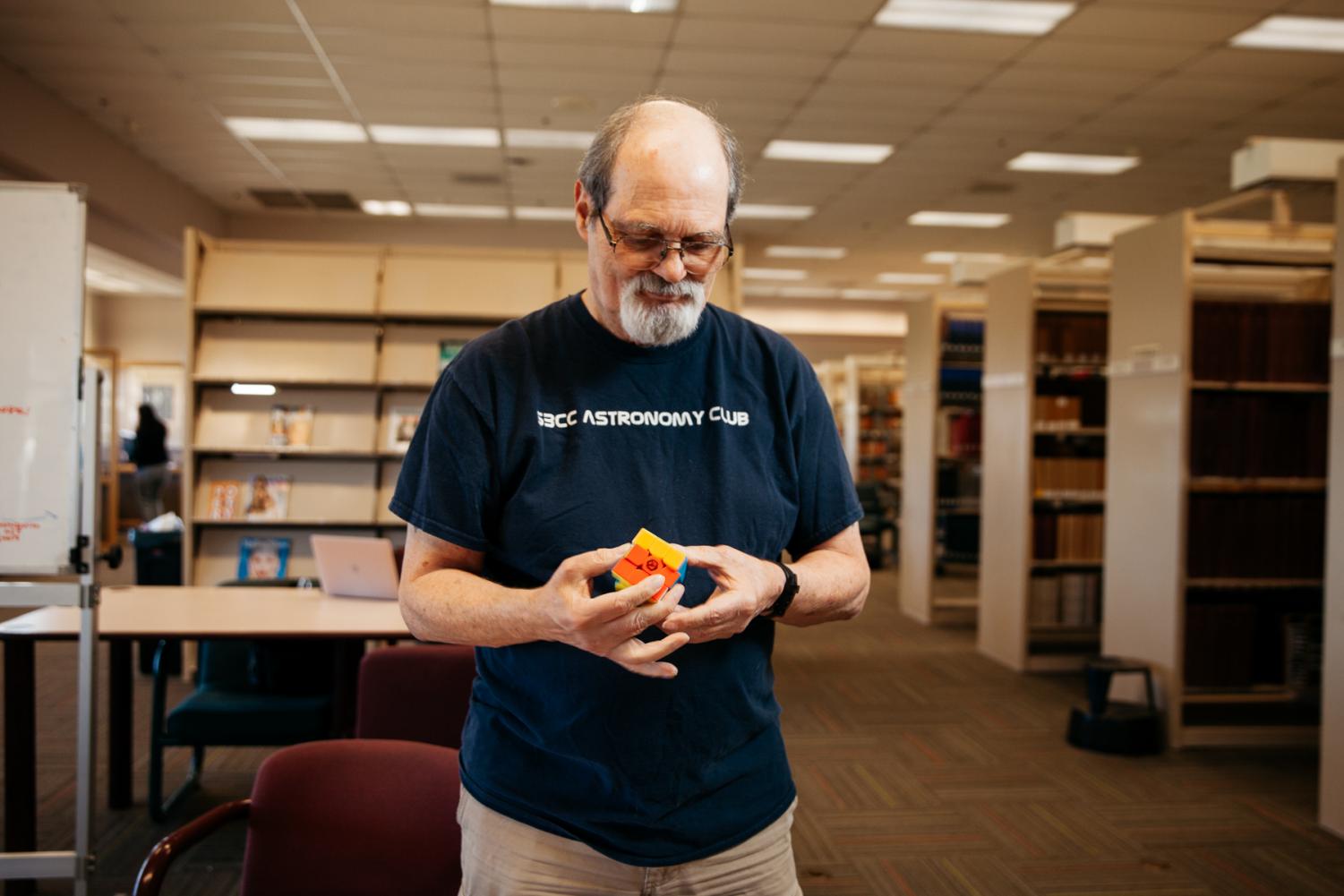
David Salvia solves his Rubik’s cube in the Luria Library on Thursday, Oct. 31, in Santa Barbara, Calif. Salvia created the “Salvia Method” for solving Rubik’s cubes and can solve a 3×3 cube in under ten seconds.
The first time Salvia solved a Rubik’s cube in 1981, it took him several weeks to complete, but he gradually got faster.
“There was no internet back then,” he said, adding that he had to figure the puzzle out by himself, which he did. The “Salvia method” is now a published technique for users to learn from.
Salvia is also involved in the City College Rubik’s cube club.
“He is an interesting fellow,” said Sean Kelly, an astronomy instructor and the advisor of the club. “He is really generous and is always a big supporter.”
Kelly reached into his bag to show me his cube techniques, explaining how Salvia taught some of that to him.
Salvia re-entered City College as a student in 2006 to study physics, wanting to know more about the universe. He wanted astronomy to be his major, but City College did not offer it at the time.
“So I drew up what I wanted in the major and brought it to the astronomy lab,” he said.
10 years passed by as Erin O’Connor and Kelly helped with finalizing the major, with Salvia being the first student to earn an astronomy degree at City College.
“The reason we have an astronomy degree is because of him,” Kelly said.
Salvia now has associate degrees in liberal arts and science with an emphasis in science and mathematics, liberal arts and science with an emphasis in arts and humanities, liberal arts and science with an emphasis in social and behavioral sciences, mathematics, physics, history, astronomy and engineering.
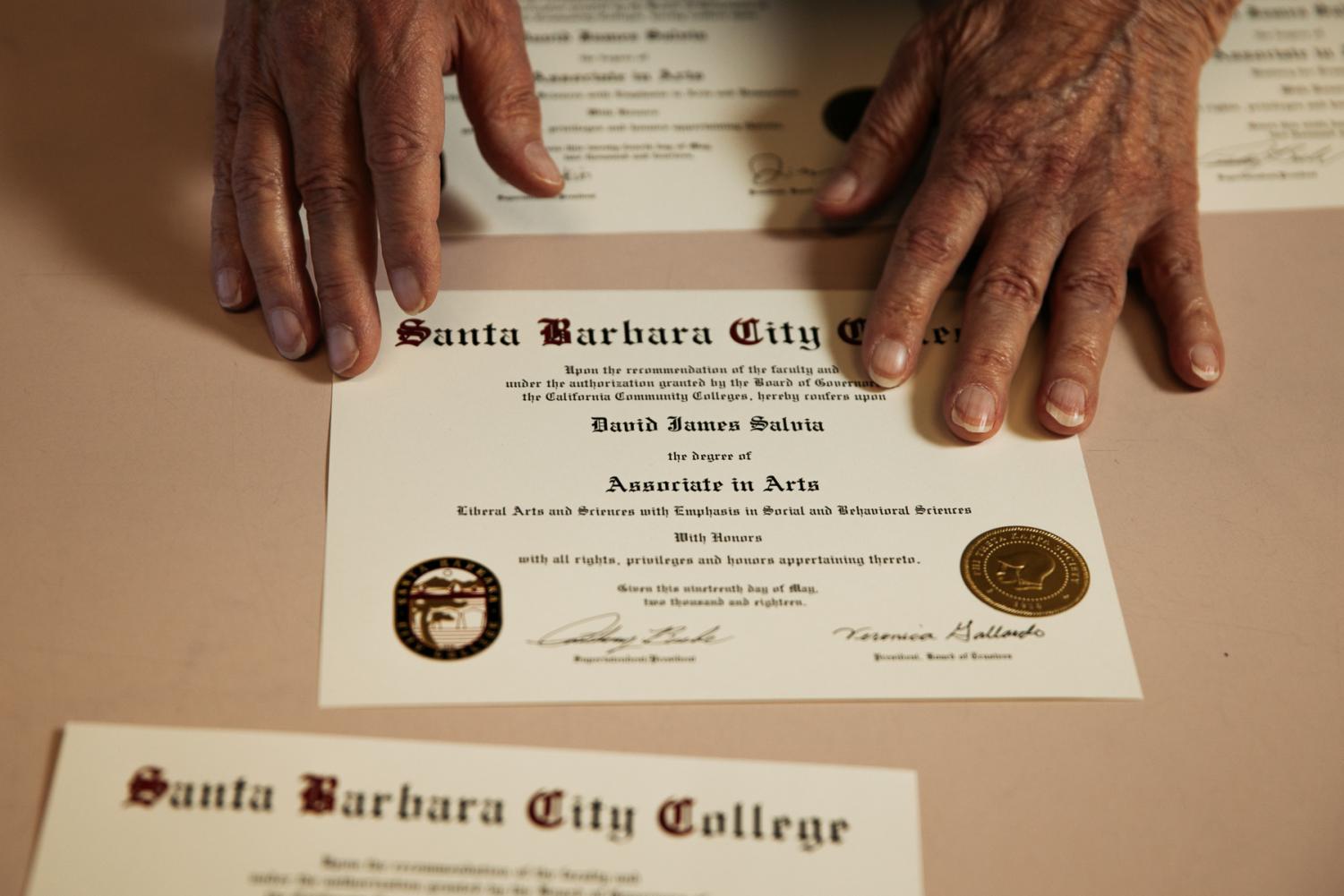
David Salvia arranges his degrees and certificates on a table in the Luria Library on Thursday, Oct. 31, in Santa Barbara, Calif.
He also has associate degrees for transfer in mathematics, physics and history, as well as two certificates for Intersegmental General Education Transfer Curriculum and Highest Honors for science and mathematics on the side.
Salvia joined the Navy in 1964 and went to school to become a sonar technician when he was 17.
He recalled that Navy students could rent a television for 10 dollars, but it only included three stations.
“I’ll give you an example of how my brain works,” he said.
Salvia explained how he asked the staff for copper, wire and two clothing hangers, from which he built an antenna that he hung outside his window.
With that creation, he now had 13 stations.
“I was watching ‘Route 66’ on channel five,” Salvia said. “When other students found out, they recreated the antenna.”
He added that he was good at math at sonar school, being the first one to finish his math tests.
“The kids became competitive to get the highest grades,” Salvia said, adding that his class graduated with the highest grades in history.
After the Navy, Salvia went on traveling and making music, recording a demo with record label Liberty Records.
Salvia will not be done learning new things any time soon and is getting his 12th Associate degree in English this year, taking various classes.
“One of the things I’m learning about now is anthropology,” he said. “So that might be my 13th major.”


